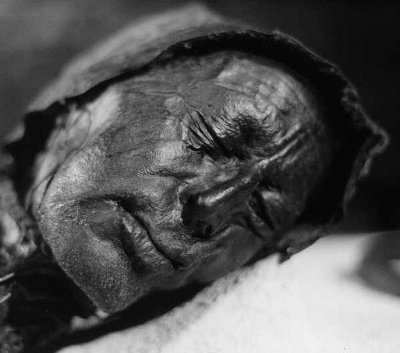15. In 1900, what has come to be known as the Antikythera Mechanism was found in an ancient Greek shipwreck. What is it?
From Quiz Swept Under the Rug
Answer:
astronomical computer
The device, which was about the size of a mantel clock, was an analog astronomical computer, which had at least thirty bronze gears. It could not only show astral positions but attempted to describe the elliptical orbits of some astral bodies. As well, it could predict solar eclipses and keep track of the timing of the Olympic games. It appears, from some of the settings, that it was built to be used in Corinth, Greece. Built between 100 and 200 B.C., it shows the knowledge (and engineering capability) of the Greeks and for a long time was considered a representation of what the Greeks knew about the universe. But in the 21st century, some scientists and scholars have noticed that some of the mathematics involved appear to be more Babylonian arithmetic than Greek trigonometry. They now wonder if perhaps much of what we credit the Greeks for, in knowledge of the universe, might first have been determined by the Babylonians.
As for the engineering skills involved in the device, which had at least 82 separate pieces, nothing that complex has been found until the development of astronomical clocks in Europe in the 14th century.
 In the year 1518, in the area of Alsace (in what is now France) a sudden plague infected people. They danced uncontrollably until they sickened or died. The source of this "illness" remains a mystery. Come learn more about this interesting malady.
In the year 1518, in the area of Alsace (in what is now France) a sudden plague infected people. They danced uncontrollably until they sickened or died. The source of this "illness" remains a mystery. Come learn more about this interesting malady. 













 Quick Question
Quick Question